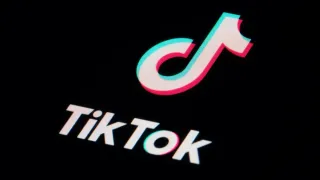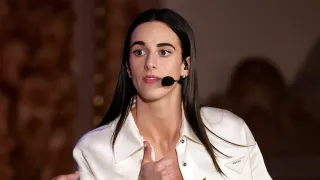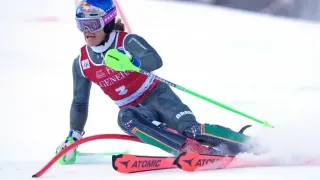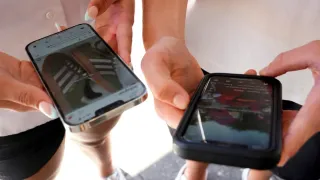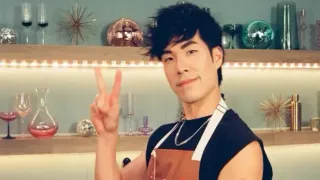October 29, 2016
In 2016, Being an Out Candidate a Matter of Degrees
Matthew S. Bajko READ TIME: 5 MIN.
In 1961 the late drag queen Jose Sarria broke open the political closet door when he sought a San Francisco supervisor seat. It marked the first time the country had seen an out gay man run for public office.
Ever since LGBT candidates have been confronted with how open they should be about their own sexual orientation or gender identity. For many years it presented a Sophie's choice: be out and proud yet risk turning off voters with homophobic views, or remain closeted and risk being subjected to a whisper campaign that could torpedo your chances.
As times have changed, and more Americans embrace LGBT rights, the number of out candidates each election cycle inches ever higher. Yet how wide open their closet doors are on the campaign trail often differs by a matter of degrees between candidates.
Some prominently disclose their spouses in their campaign materials, seek out endorsements from LGBT political groups, and promote the fact they are "the first" gay, lesbian, bisexual, or transgender candidate to run for elected office in their area.
Others tend to downplay their social life and instead focus on issues in their campaigns. But they will include telltale signs in their biographies, such as serving on the board of well known LGBT agencies, to signal their being members of the LGBT community to LGBT voters.
Then there are those who see no reason to trumpet being LGBT as a political candidate or struggle with how to disclose to voters their sexual orientation or gender identity without seeming to be pandering for votes.
The different ways candidates disclose their LGBT status can be seen among the more than 30 out LGBT candidates running for office in the Bay Area this November.
Opting for full disclosure, for example, is Hercules resident Brian Campbell-Miller, a gay real estate agent running for city council. On his campaign site under the "about" tab, he talks about why he and his husband moved to the East Bay city and includes a photo of their wedding.
"I wanted to be very upfront with who I am. I don't see it as a liability," Campbell-Miller, who would be his city's first out council member, told the Bay Area Reporter. "I don't see it as something I am ashamed of in the very least. It is not all of who I am, but I love my husband very much and am very happy we are married."
Taking a polar opposite approach is John Stevens, who is running for city council in Martinez and, if elected, would be the first LGBT person to serve on the governing body. His campaign site makes no mention of his being gay or his partner. While at one point his biography mentioned he had served on the board of the Human Rights Campaign, it has since been changed and deletes that reference to the national LGBT rights group.
The only clue to his being an out candidate comes from his listing "Victory Fund" among his endorsements, a reference to the Gay and Lesbian Victory Fund, which works to elect LGBT candidates across the country.
When asked if he was deliberately downplaying his being gay in the race, Stevens told the B.A.R. that most residents of Martinez know about his sexual orientation as he has been interviewed a number of times by the local newspaper for stories about LGBT issues. He and his partner did pose for a photographer they had hired to take photos for his campaign material.
"We just picked out the best pictures. It happened not to be of the two of us together," he said. "There was no strategy talk about if we shouldn't include him or should include him."
Stevens did query a current councilperson when he was deciding if he should enter the race on if his being gay would be an issue. The answer he received was an emphatic "No."
"When Prop 8 was overturned in 2013, the local paper called me and interviewed me about it. The story and a photo of me ran on the front page," recalled Stevens, referring to the California ballot measure that had banned same-sex marriage. "People figured out a long time ago that I am gay. They are not whispering about it; everybody pretty much knows it."
Voters in San Francisco who peruse the website of Shanell Williams, a candidate for the community college board, will learn she became a ward of the court at 15 and is the first person in her family to attend college. She goes into some detail about her advocacy work with various nonprofits and involvement in the fight to save City College of San Francisco while serving as the student trustee on the board.
What they will not learn is that Williams is bisexual.
"For me, there are a lot of things that make up my identity. I am not in the closet," said Williams.
As a first time candidate, she said how to discuss her identity with voters "is a new realm for me." While she has won the support of many LGBT organizations and leaders, and has been active in the local LGBTQ community for years, Williams said she does encounter bi-phobia at times.
"It is hard when you are a bisexual person. Often you have to choose one or the other," she said.
Oakland resident Nick Resnick, running for a seat on the Peralta Community College District Board of Trustees, has struggled with how best to be open with voters about being a transgender man. He boasts about being a "proud Oakland homeowner," married father, and teacher on his campaign site, but nowhere does he talk about his gender identity.
He acknowledged in an interview with the B.A.R. that the issue of disclosure has been "tough" as he is "not super out about being transgender" in his personal life, let alone on the campaign trail.
"But not for any particular reason," Resnick added. "At this time in my life it is not something at the forefront really of my mind or a consideration when I am meeting and reaching out to people."
When asked about it, Resnick doesn't hide his being transgender. But he readily admitted he is conflicted about how to discuss that aspect of his life in his campaign.
"I don't want to use my trans identity to come off as I am pulling a card," he said. "Because I am seen to everybody I work with and volunteer with and mentor in every aspect in my life as a white man who holds significant privilege, I really battle with how to disclose that information."
Should he win his race, thus becoming only the second known transgender person to win an elected office in the Bay Area, Resnick will again be confronted with how visible and outspoken as a transgender elected official he is comfortable being.
"I am still figuring out what that would look like," he said. "I would want to be a voice for LGBT people."
